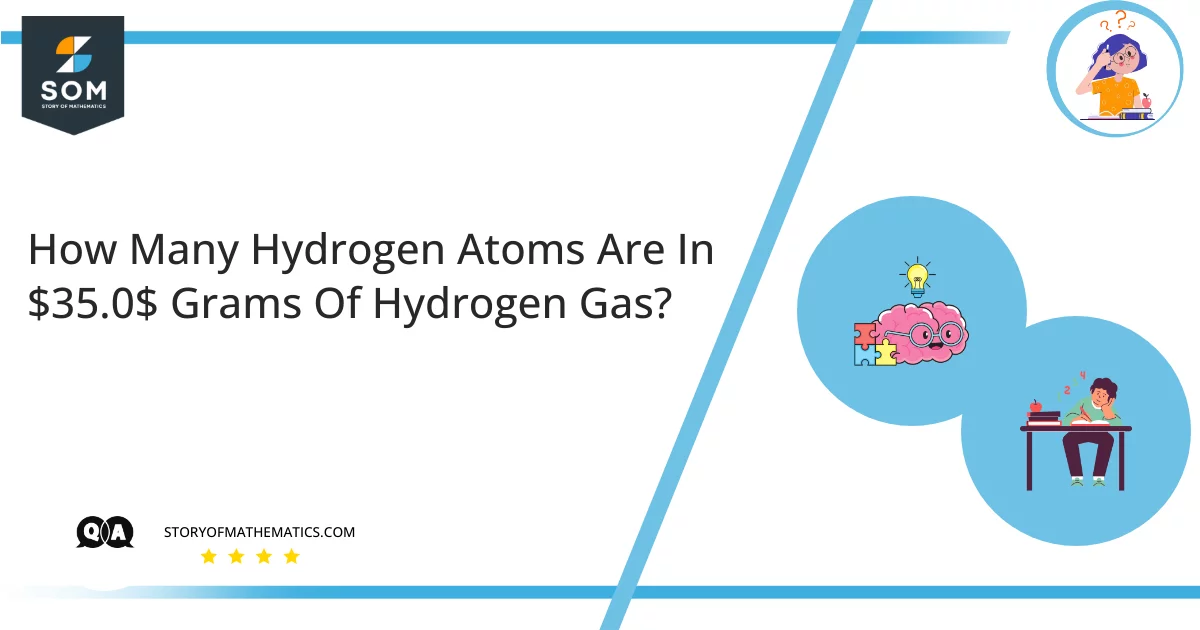JUMP TO TOPIC

In order to understand the quantity of atoms in a given mass of element, we need to understand the concept of Mole.
$Mole$ is defined as the mass of substance which can be an atom, molecule, electron, ion or any other particle or group of particles having $6.022\times{10}^{23}$ elementary entities which is known as $Avogadro’s$ $Constant$ or $Avogadro’s$ $Number$ having a symbol of $N_A$ which is expressed in SI unit ${\rm mol}^{-1}$. Mole is the $SI$ unit for the amount of substance which is represented by the symbol $mol$.
\[Avogadro’s Number = \frac{6.022\times{10}^{23}\ atoms}{1\ mol}\ \]
Mole is also similar to the substance’s atomic or molecular mass as examples given below:
- Carbon has an atomic mass of $12$, hence $1$ $mol$ of atomic carbon will have a mass of $12$ $grams$ and contains $6.022\times{10}^{23}$ of carbon atoms.
- Hydrogen has an atomic mass of $1.0079$, hence $1$ $mol$ of atomic hydrogen will have a mass of $1.00784$ $grams$ and contains $6.022\times{10}^{23}$ of Hydrogen atoms.
- Water $H_2O$ has a molecular mass of $18.01528$, hence $1$ $mol$ of molecular water will have a mass of $18.01528$ $grams$ and contains $6.022\times{10}^{23}$ of water molecules.
Expert Answer:
We know that Molar mass of $H_2$ is equal to molecular mass of $H_2$. We will divide the given mass of element with molar mass of $H_2$ to get the number of moles. This is called conversion of given mas to number of moles
\[Mass\ \rightarrow\ Moles\]
Once you get the number of moles, multiply it with Avogadro’s Number to calculate the number of atoms. This is called conversion of number of moles to number of atoms.
\[Mass\ \rightarrow\ Moles\ \rightarrow\ Atoms\]
As per the concept of mole
\[\frac{m}{M}\ =\ \frac{N}{N_A}\]
Where,
$m =$ Mass of hydrogen gas $H_2 = 35g$
$M =$ Molar Mass of Hydrogen Gas $H_2 = 2.01568 \dfrac{g}{mol}$
$N_A =$ Avogadro’s Number $= 6.022\times{10}^{23}$
$N =$ Number of Hydrogen $H_2$ Atoms
By re-arranging the equation and substituting the values, we get
\[N\ =\ \frac{35g}{2.01568\ \dfrac{g}{mol}}\ \times\ 6.022\times{10}^{23}{\mathrm{mol}}^{-1}\ \]
By cancelling out units of gram and mol,
\[N\ =\ 104.565\ \times\ {10}^{23}\]
By moving the decimal to two points left,
\[N\ =\ 1.04565\ \times\ {10}^{25}\]
Numerical Results:
As per the mole concept, the number of hydrogen atoms in $35g$ of Hydrogen Gas are $1.04565\ \times\ {10}^{25}$
Example:
Question: How many atoms of gold are in $58.27 g$ of gold $Au$ ?
We know that the atomic weight of gold, $Au$ is $196.967$.
So, the Molar Mass $M$ of Gold, $Au = 196.967 \dfrac{g}{mol}$
As per the concept of mole
\[\frac{m}{M}\ =\ \frac{N}{N_A}\]
Where,
$m =$ Mass of Gold $Au = 58.27g$
$M =$ Molar Mass of Gold $Au = 196.967 \dfrac{g}{mol}$
$N_A =$ Avogadro’s Number $= 6.022\times{10}^{23}$
$N =$ Number of Gold $Au$ Atoms
By re-arranging the equation and substituting the values, we get
\[N\ =\ \frac{58.27g}{196.967\ \dfrac{g}{mol}}\ \times\ 6.022\times{10}^{23}{\mathrm{mol}}^{-1}\ \]
By cancelling out units of gram and mol, we get number of atoms of Gold as follows:
\[N\ =\ 1.782\ \times\ {10}^{23}\]
